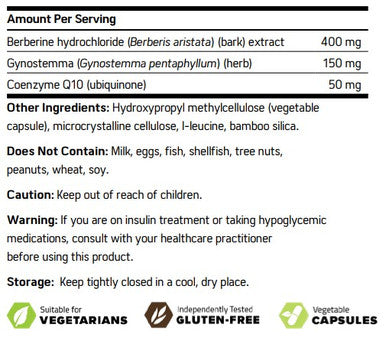5 Facts You Should Know About Diabetes
Diabetes comes in three plus one general flavors, 1, 2 and 3 plus gestational. If you have type I (T1D), you already know about it. Type 2 (T2D) is super common and often undiagnosed. The most common type of Alzheimer's Disease is often referred to as Type 3 diabetes (T3D) by researchers and clinicians in the know. Let's not forget gestational diabetes that is a sometimes consequence of pregnancy.
Size of the Problem
According to the CDC, 37 million people have Types 1 or 2 diabetes and 20% of those cases are undiagnosed.
96 million adults have prediabetes. 8 or 10 are unaware of their condition.
T2D accounts for 90-95% of all diagnosed cases.
Diabetes is the 8th most common cause of death in the US.
The trend is not good with the diagnosed cases of T2D more than doubling in the last 20 years.
Medical costs are twice as high for those with T2D compared to those who don't.
General cost in lost productivity and medical costs is about $347 billion per year. That is billion with a "B".
What to Do
If you are in the T1D camp, you are still alive because you have learned how to manage your insulin levels. Hopefully new treatment is on the way to actually change your body's ability to monitor and produce insulin without your constant attention.
The T2D group can usually achieve progress with the dreaded words, diet and exercise. Some of you have figured this out and have taken steps and some find this really hard. Start with small steps to lower your dependance on insulin and you may be able to manage your situation without the meds.
What About Metformin?
Metformin has been around for over 60 years, so we know a lot about it. This is most common drug for treating T2D. It works by inhibiting liver pathways that produce glucose. You can expect lower A1C, lower fasting glucose, weight loss and some improvement in cardiovascular function.
Metformin is also used (off label) for prediabetes, gestational diabetes and even polycystic ovary syndrome.
Undesirable effects tend to disappear after your first few weeks of use. Alcohol and metformin don't mix that well so any alcohol intake should be very moderate. You might be at risk for lactic acidosis with alcohol intake.
Metformin research with Alzheimer's Disease so far has been mixed.
What About Ozempic?
The latest medical solution to T2D is Ozempic (semaglutide). Injections of this drug seem to improve blood sugar and help with weight loss. Some of the studies have data from several years and it appears that continued use of Ozempic is still effective meaning that the benefits don't decrease over time.
This drug has shown real promise in treating T2D and is a welcome solution for those resistant to lifestyle changes. Problem is, Ozempic now has a black box warning meaning serious health risks happen too often. Some of the serious effects are: thyroid tumors and thyroid cancer, pancreatitis, kidney failure, gall bladder disease, vision problems, hypoglycemia and allergic reactions. Suicidal ideation and suicidal behavior have been reported as well. Not a happy list.
One person I have come to know in my clinic is in her 80s with T1D. She tries really hard to monitor her diet and activity and is still around to tell the tale. She rides her stationary bike about ½ an hour every day. Her husband takes an engineer's approach to her glucose monitor and pump and keeps them in top working condition. Her eyes are pretty well gone but she has done remarkably well considering the situation.
Take a tip from this person and work hard to control your diabetes. Your life will be better for it.
We do have a list of products that can help with blood sugar.
See related items below:








